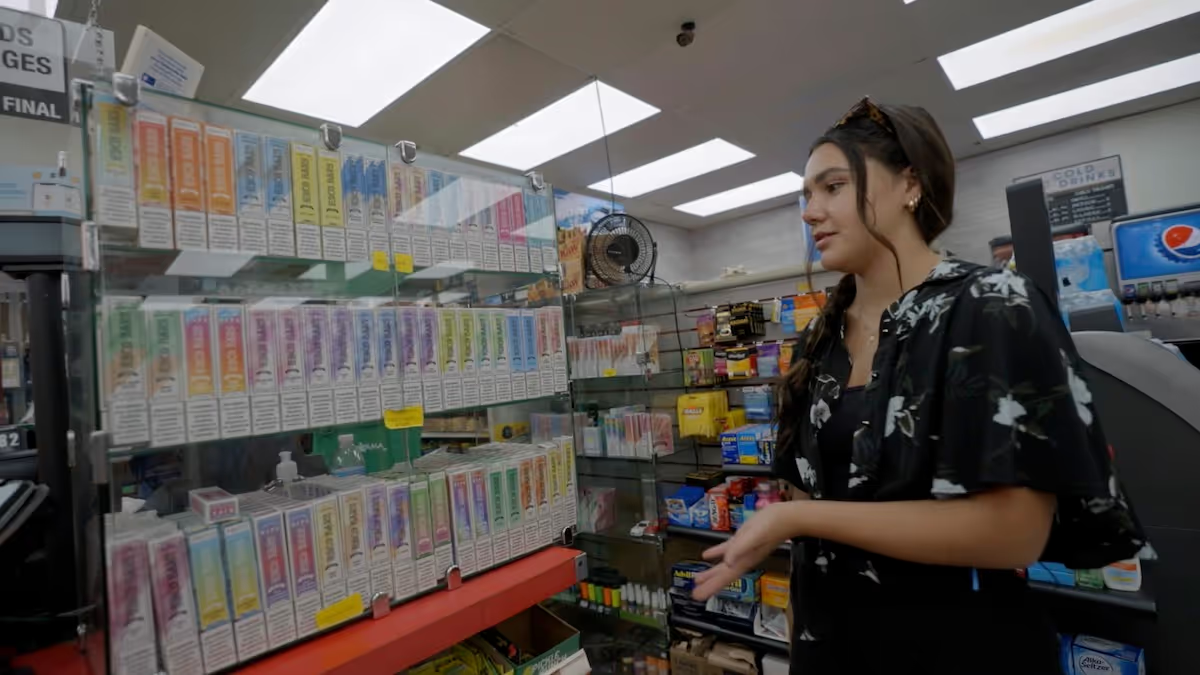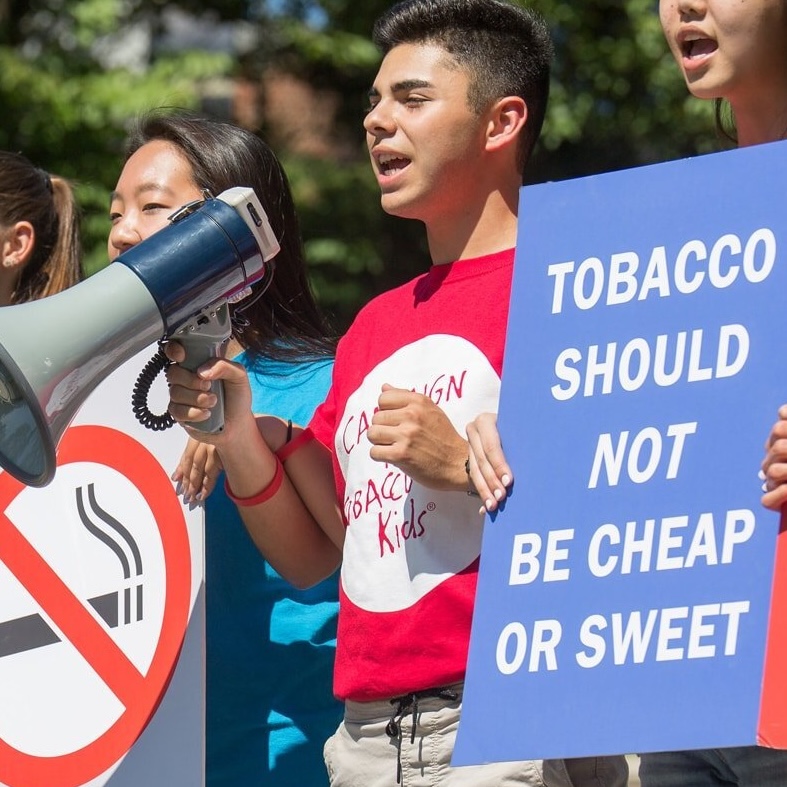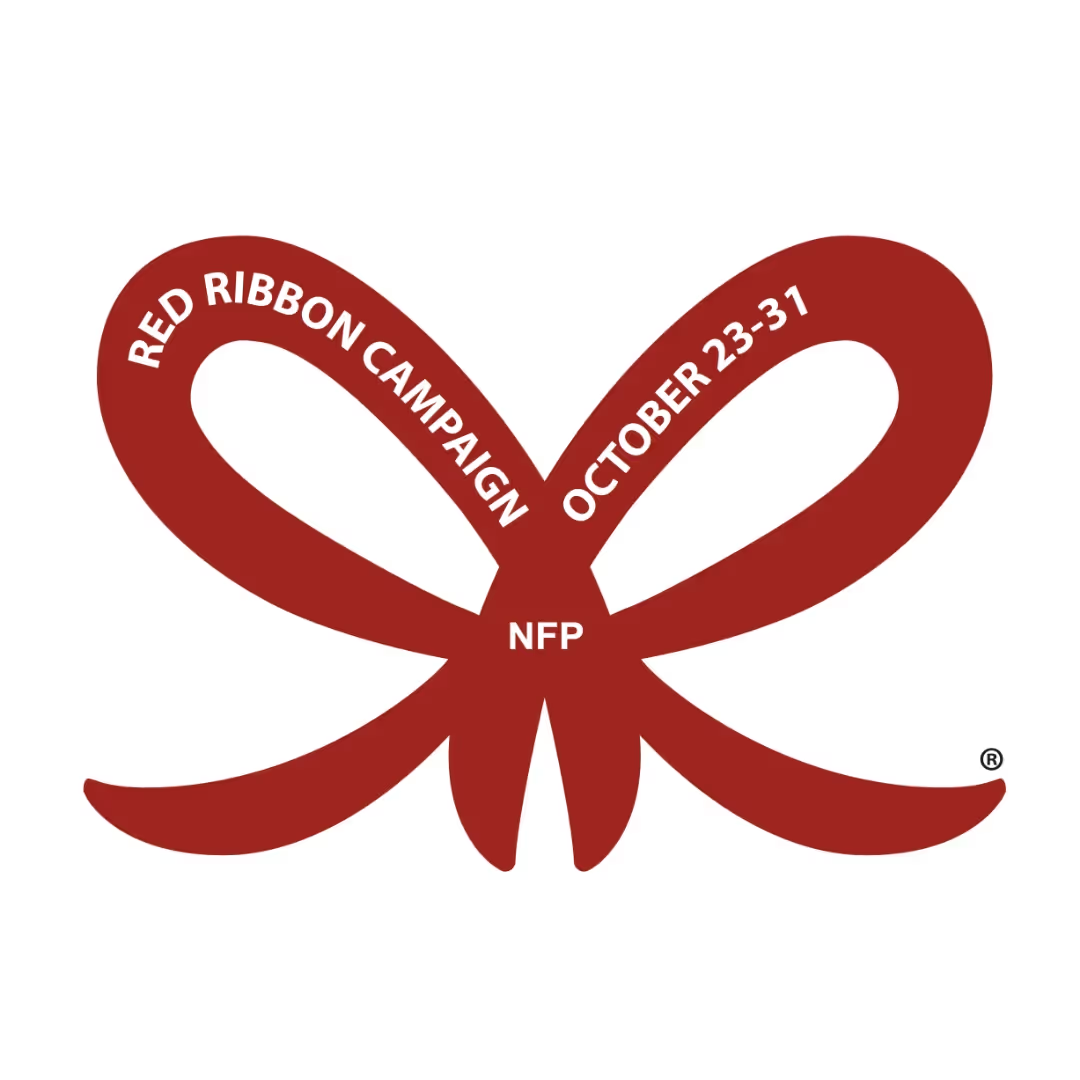


Many teens vape without their parents knowing, and many do not understand the real risks, despite surveys showing parents believe they do. Misconceptions about vaping, subtle scents, and secretive use make it easy to hide. Social media has fueled the rise of vaping through influencer marketing, can trigger cravings when teens see others vape, but can also support quitting when used for accountability.
One of the stories that teens and adults particularly find captivating in our new film, Screenagers Under The Influence: Addressing Vaping, Drugs, and Alcohol in the Digital Age, involves a wonderful girl named Ellie. Ellie started trying her friends’ vapes at parties and loved the “head high” from the nicotine. Because she enjoyed the “way it made (her) feel,” she was soon buying her own e-cigarettes.
We all would love for our kids not to smoke now or in the future. The reality is that some high school students, middle school students, and even some younger kids vape using e-cigarettes.
Many parents are convinced that their child has never used such devices, nor ever will. How could they? Haven’t we drilled into their heads how bad smoking is for people?
As a physician, I can tell you that many of my teen patients have said they indeed use e-cigarettes, and their parents are unaware of this. Ellie, from the film, did not let her parents know she had been vaping for quite a long time.
Learn more about showing our movies in your school or community!
Join Screenagers filmmaker Delaney Ruston MD for our latest Podcast

Learn more about our Screen-Free Sleep campaign at the website!
Our movie made for parents and educators of younger kids
Learn more about showing our movies in your school or community!
A survey of parents released last week provides some interesting data about parents’ beliefs when it comes to their children and vaping. Here are a few of the findings:
In reality, many young people do not know about the risks of vaping. Several investigations have shown this to be the case. For example, studies find that many youth believe that water vapor is inhaled when vaping and yet it is actually an aerosol mist. This aerosol is loaded with microscopic particles that damage lung parenchyma.
The fact that nearly half of parents think they would definitely know if their child was vaping is a testament to our wishful thinking. I know plenty of teens who have super strong relationships with their parents but who hide the fact that they vape from them.
One reason vaping can go under one’s radar is that the fruity scent of vaping can be mistaken for gum or candy, if it is smelled at all.
Learn more about showing our movies in your school or community!
Join Screenagers filmmaker Delaney Ruston MD for our latest Podcast

Learn more about our Screen-Free Sleep campaign at the website!
Our movie made for parents and educators of younger kids
Join Screenagers filmmaker Delaney Ruston MD for our latest Podcast
So now, let's relate this to social media and productive conversation topics we can have with our children or students this week.
As we’re about to celebrate 10 years of Screenagers, we want to hear what’s been most helpful and what you’d like to see next.
Please click here to share your thoughts with us in our community survey. It only takes 5–10 minutes, and everyone who completes it will be entered to win one of five $50 Amazon vouchers.
One of the stories that teens and adults particularly find captivating in our new film, Screenagers Under The Influence: Addressing Vaping, Drugs, and Alcohol in the Digital Age, involves a wonderful girl named Ellie. Ellie started trying her friends’ vapes at parties and loved the “head high” from the nicotine. Because she enjoyed the “way it made (her) feel,” she was soon buying her own e-cigarettes.
We all would love for our kids not to smoke now or in the future. The reality is that some high school students, middle school students, and even some younger kids vape using e-cigarettes.
Many parents are convinced that their child has never used such devices, nor ever will. How could they? Haven’t we drilled into their heads how bad smoking is for people?
As a physician, I can tell you that many of my teen patients have said they indeed use e-cigarettes, and their parents are unaware of this. Ellie, from the film, did not let her parents know she had been vaping for quite a long time.
A survey of parents released last week provides some interesting data about parents’ beliefs when it comes to their children and vaping. Here are a few of the findings:
In reality, many young people do not know about the risks of vaping. Several investigations have shown this to be the case. For example, studies find that many youth believe that water vapor is inhaled when vaping and yet it is actually an aerosol mist. This aerosol is loaded with microscopic particles that damage lung parenchyma.
The fact that nearly half of parents think they would definitely know if their child was vaping is a testament to our wishful thinking. I know plenty of teens who have super strong relationships with their parents but who hide the fact that they vape from them.
One reason vaping can go under one’s radar is that the fruity scent of vaping can be mistaken for gum or candy, if it is smelled at all.
So now, let's relate this to social media and productive conversation topics we can have with our children or students this week.
Sign up here to receive the weekly Tech Talk Tuesdays newsletter from Screenagers filmmaker Delaney Ruston MD.
We respect your privacy.
One of the stories that teens and adults particularly find captivating in our new film, Screenagers Under The Influence: Addressing Vaping, Drugs, and Alcohol in the Digital Age, involves a wonderful girl named Ellie. Ellie started trying her friends’ vapes at parties and loved the “head high” from the nicotine. Because she enjoyed the “way it made (her) feel,” she was soon buying her own e-cigarettes.
We all would love for our kids not to smoke now or in the future. The reality is that some high school students, middle school students, and even some younger kids vape using e-cigarettes.
Many parents are convinced that their child has never used such devices, nor ever will. How could they? Haven’t we drilled into their heads how bad smoking is for people?
As a physician, I can tell you that many of my teen patients have said they indeed use e-cigarettes, and their parents are unaware of this. Ellie, from the film, did not let her parents know she had been vaping for quite a long time.

Teens are getting involved in civic action to fight Big Tobacco, which helps reduce screen time while making a real impact. From recent teen-led policy wins and youth advocacy at CADCA to ongoing legal cases questioning how social media platforms hook young users, the post highlights why this moment matters and shares national organizations where teens can get involved.
READ MORE >
This week is Red Ribbon Week, the nation’s longest-running youth drug-prevention program — and I can’t think of a more important time to talk about a new, dangerous substance spreading fast among teens called 7-OH that's derived from the kratom plant.
READ MORE >for more like this, DR. DELANEY RUSTON'S NEW BOOK, PARENTING IN THE SCREEN AGE, IS THE DEFINITIVE GUIDE FOR TODAY’S PARENTS. WITH INSIGHTS ON SCREEN TIME FROM RESEARCHERS, INPUT FROM KIDS & TEENS, THIS BOOK IS PACKED WITH SOLUTIONS FOR HOW TO START AND SUSTAIN PRODUCTIVE FAMILY TALKS ABOUT TECHNOLOGY AND IT’S IMPACT ON OUR MENTAL WELLBEING.
